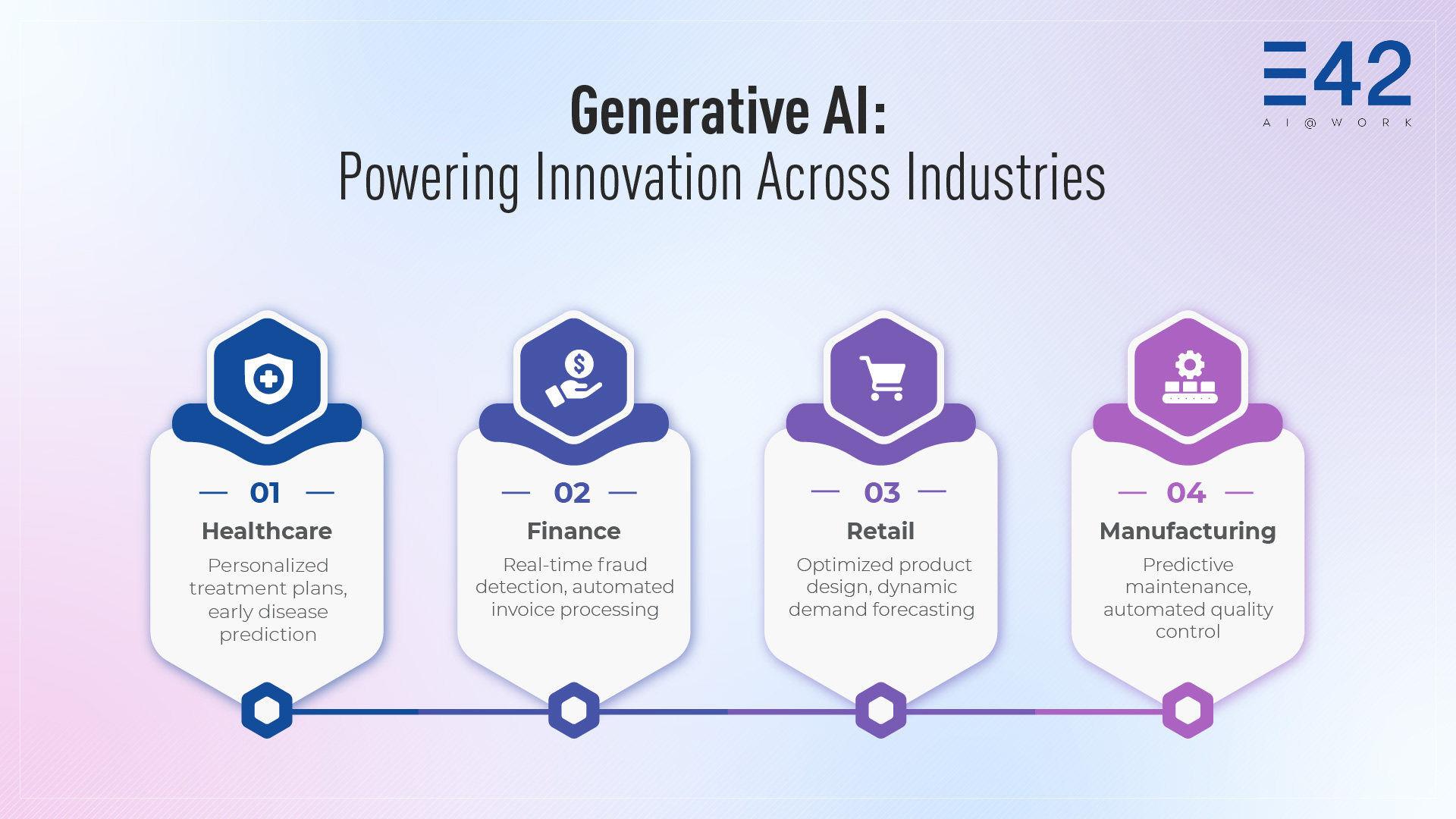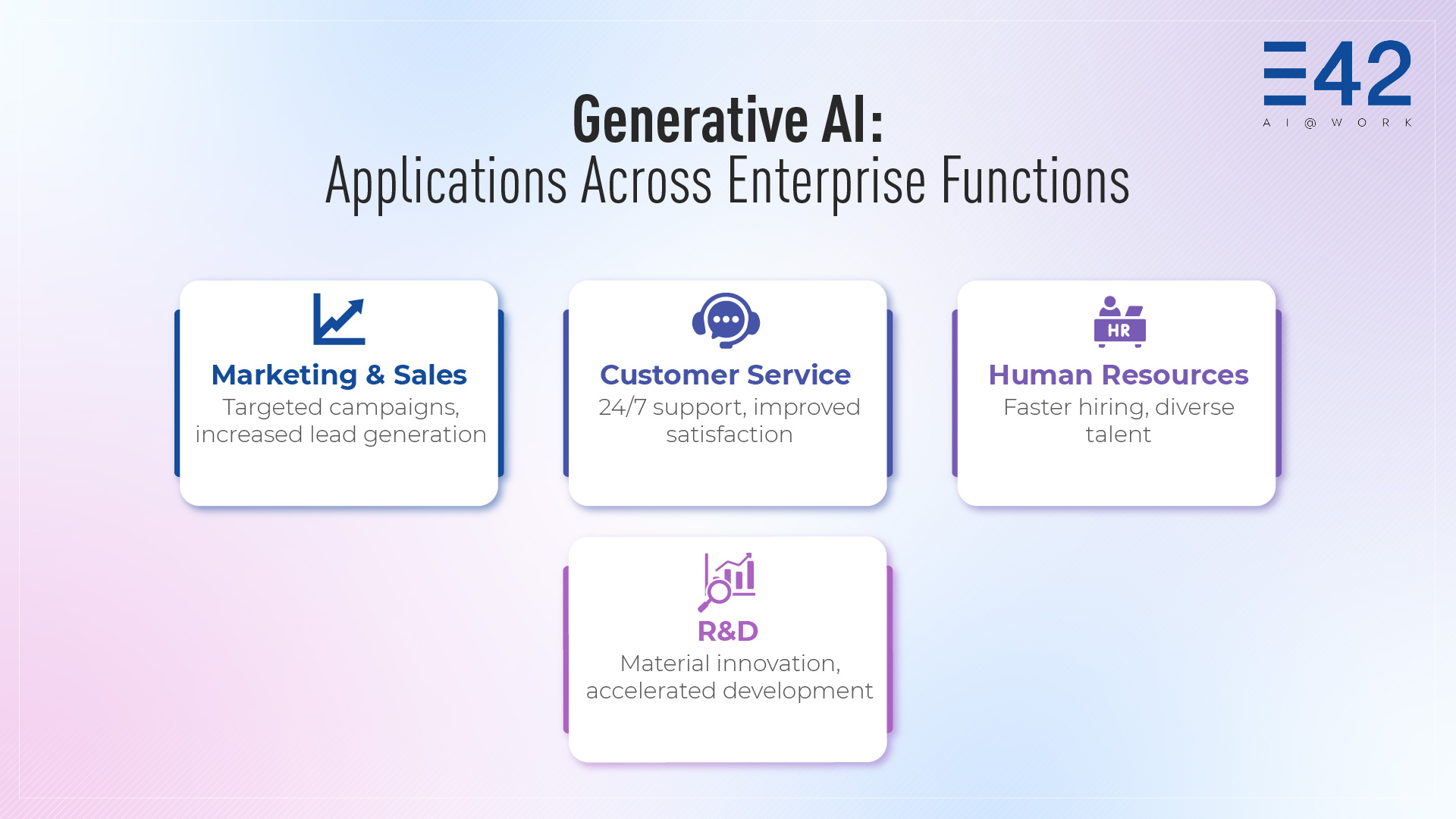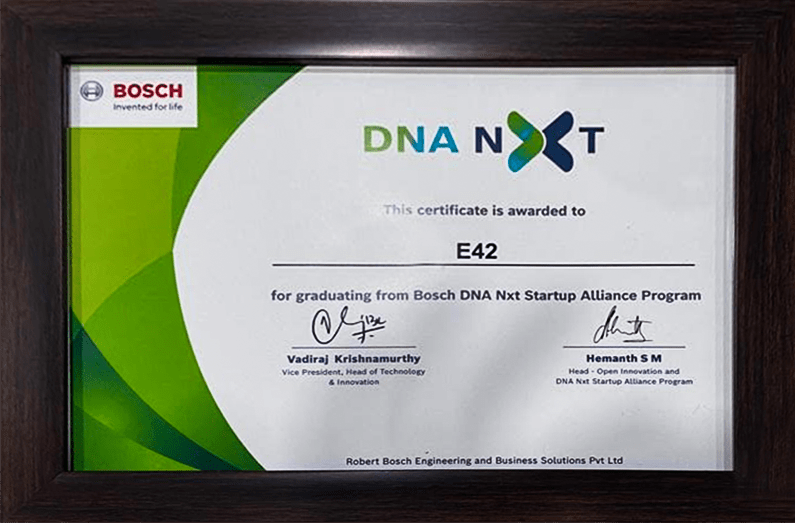Generative AI, a significant development in artificial intelligence (AI), is making a substantial impact on enterprises. It optimizes operations and provides a superior customer experience. By 2026, it’s projected by Gartner that more than 80% of enterprises will have implemented generative AI. This rapid adoption highlights the immense potential of generative AI applications in reshaping the business landscape. This article provides a detailed examination of how generative AI is propelling organizations towards success and positively affecting their financial performance.
Introduction to Generative AI
Generative AI is a subset of AI that employs machine learning models, specifically Generative Adversarial Networks (GANs) and Variational Autoencoders (VAEs), to generate new data that mimics the distribution of the training data. GANs work through a competitive process where a generator creates samples and a discriminator evaluates them, while VAEs use probabilistic inference to produce data, optimizing the parameters of a probability distribution instead of the data itself.
Generative AI Applications Across Industries

- Healthcare Transformation: Generative AI is revolutionizing healthcare by analyzing patient data to create personalized treatment plans. This not only enhances patient outcomes but also reduces overall healthcare costs. It can predict disease progression, enabling early interventions and improving patient prognosis.
- Financial Innovation: In the financial sector, generative AI plays a pivotal role in real-time fraud detection by learning from historical data patterns. It can identify anomalies that may indicate fraudulent transactions, thereby enhancing security. Moreover, in the realm of Accounts Payable, generative AI can automate invoice processing, improving accuracy, speeding up payment cycles, and strengthening vendor relationships.
- Retail Revolution: In retail, generative AI is used to optimize product designs based on customer preferences, leading to increased sales and customer satisfaction. It can analyze customer behavior and market trends to predict what designs will be popular. Furthermore, it aids in dynamic demand forecasting, preventing stockouts through predictive analysis of historical sales data, and ensuring optimal inventory levels.
- Manufacturing Excellence: In manufacturing, generative AI is beneficial for predictive maintenance, where it analyzes sensor data to foresee maintenance needs and prevent costly downtime. This leads to increased operational efficiency and reduced maintenance costs. Additionally, automated product quality control powered by generative AI enhances overall quality processes, reduces waste, and ensures consistent product quality.
Generative AI Applications Across Enterprise Functions

- Marketing and Sales Evolution: Generative AI is a game-changer in marketing and sales. It can create personalized content that resonates with individual customers, thereby increasing engagement and lead generation. By analyzing customer data, it can perform a SWOT (Strengths, Weaknesses, Opportunities, and Threats) analysis, providing valuable insights that can guide strategic decision-making.
- Customer Service Excellence: In customer service, AI-powered assistants provide round-the-clock support, enhancing customer satisfaction and reducing costs associated with traditional customer service models. Moreover, sentiment analysis of customer feedback, powered by generative AI, helps businesses identify areas for improvement and take corrective action promptly.
- Human Resources Efficiency: In human resources, generative AI enhances efficiency by automating tasks such as resume screening. This not only speeds up the recruitment process but also frees up HR professionals to focus on higher-level tasks. Furthermore, personalized recruitment marketing, driven by generative AI, can attract a diverse pool of talent by creating tailored advertisements that appeal to different demographics.
- Research & Development Innovation: In research and development, generative AI is accelerating innovation in material science. It can generate new designs based on existing data, fostering continuous innovation in product development. This can lead to the creation of more efficient, sustainable, and high-performing materials, driving progress across various industries.
The Influence of Generative AI on the Bottom Line
Generative AI applications can significantly enhance an enterprise’s bottom line by boosting revenue through personalized customer experiences and optimized marketing strategies. It can also cut costs by automating manual tasks and enhancing operational efficiency. Moreover, it bolsters productivity by fostering innovation and enabling quicker decision-making. Here are a few of the many examples of generative AI applications which help in enhancing the bottom line:
Managing Vendor Relationships
Generative AI can be a powerful tool for fostering positive vendor relationships. By automating repetitive tasks like content creation for communication or data analysis for contract negotiations, generative AI frees up valuable time. This allows for more focused communication and collaboration, leading to a deeper understanding of each other’s needs. Additionally, generative AI can personalize communication, tailoring proposals or reports to specific vendors, which leads to higher vendor retention, ensuring a steady and high-quality supply of services. In the long run, these factors contribute to the overall success and profitability of the enterprise.
Leveraging Interactive Dashboards for Data-Driven Decision-Making
Interactive dashboards are potent tools that can visualize the insights generated. They offer real-time data visualization, enabling stakeholders to monitor progress, spot potential issues, and swiftly adapt their strategies. This empowers enterprises to make data-driven decisions, enhancing their agility and competitiveness. Consequently, this has a significant impact on the bottom line, leading to increased revenue and reduced costs.
What are the Ethical Considerations When Using Generative AI?
When incorporating AI into enterprise operations, strict adherence to safety practices is paramount. Foremost among these is prioritizing data privacy and security, ensuring compliance with relevant regulations, and implementing robust measures to safeguard sensitive information. Transparency in AI decision-making processes is equally critical, necessitating clear documentation and explanations to avoid any perception of opaque ‘black box’ scenarios. Enterprises must also consider the ethical dimensions, regularly auditing AI systems for bias and taking corrective actions to prevent unfair discrimination. A comprehensive disaster recovery plan, encompassing regular data backups and procedures for system restoration, is essential to mitigate potential risks associated with AI system failures.
In addition to prioritizing safety practices, the strategic deployment of on-premises Large Language Models (LLMs) for generative AI offers significant advantages. Hosted within the company’s network, on-premises LLMs bolster data security and transparency by providing greater customization and control over AI training and usage. Particularly beneficial for businesses in regions with stringent data residency laws or handling highly sensitive data, the implementation of on-premises LLMs requires substantial computational resources and technical expertise. However, the enhanced security and control contribute positively to the overall efficacy of generative AI deployment in enterprise settings.
Conclusion
Generative AI holds immense potential for transforming enterprises across various sectors. From healthcare to retail to manufacturing—it is reshaping operations, enhancing efficiency, and driving innovation. By understanding its intricacies and strategically implementing it, businesses can unlock its full potential. However, it’s crucial to adhere to safety practices as we continue to explore and understand the future of enterprise-level process automation. It’s not just about maximizing value; it’s about paving the way for a smarter, more efficient, and more innovative business landscape.
To leverage generative AI for your enterprise operations with E42, get in touch with us today!



